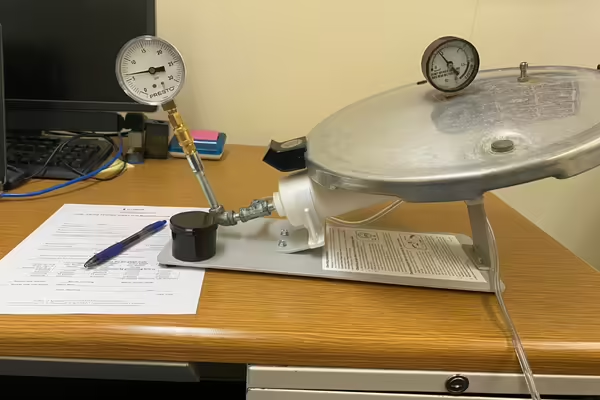
URBANA, Ill. — With summer gardens gearing up, it’s time to take canning equipment out of storage. Illinois Extension offers free dial-gauge pressure canner testing to ensure the equipment works accurately.
A variety of foods can be canned at home through boiling water bath canning and pressure canning. Pressure canning is required when canning low-acid foods, particularly meats and vegetables. Having equipment checked every year is an important part of the canning process. Visit the Pressure Canner Testing Sites map to find the nearest center. Tests are free and take around 15 minutes per canner.
“The needle on a dial-gauge pressure canner can become inaccurate,” says Caitlin Mellendorf, nutrition and wellness educator. “If the dial gauge is not measuring the correct pressure, foods inside the pressure canner may be under-processed, which increases the risk of serious illness from botulism.”
Along with testing, Illinois Extension offers in-person canning and preserving classes around the state. Watch recorded training from the Canning with Confidence and Fill Your Pantry series at home. Read more about canning, freezing, drying and fermentation on the updated Food Preservation website.
SOURCE/WRITER: Caitlin Mellendorf, nutrition and wellness educator, Illinois Extension
EDITOR: Herbert Chavez, media communications coordinator, Illinois Extension
University of Illinois Extension develops educational programs, extends knowledge, and builds partnerships to support people, communities, and their environments as part of the state's land-grant institution. Extension serves as the leading public outreach effort for University of Illinois Urbana-Champaign and the College of Agricultural, Consumer and Environmental Sciences in all 102 Illinois counties through a network of 27 multi-county units and over 700 staff statewide. Extension’s mission is responsive to eight strategic priorities — community, economy, environment, food and agriculture, health, partnerships, technology and discovery, and workforce excellence — that are served through six program areas — 4-H youth development, agriculture and agribusiness, community and economic development, family and consumer science, integrated health disparities, and natural resources, environment, and energy.